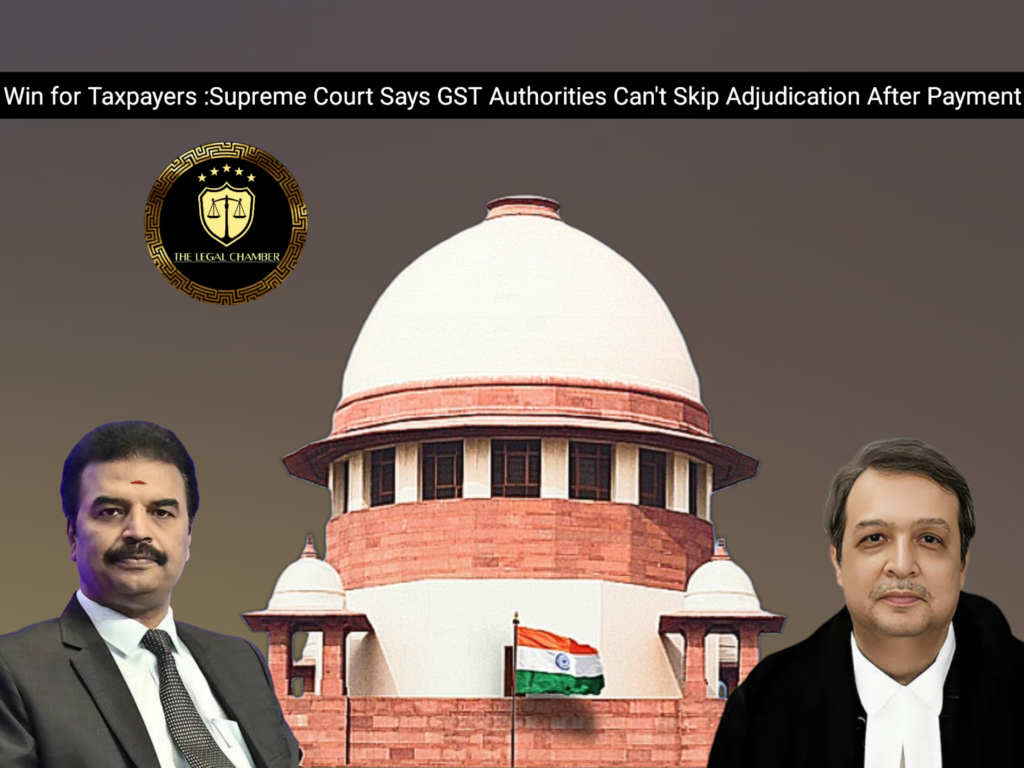
The Supreme Court held that payment of tax and penalty under Section 129 of the CGST Act does not absolve the proper officer from passing a reasoned order under Section 129(3). Such an order is mandatory to safeguard the taxpayer’s right to appeal and ensure compliance with principles of natural justice and due process under Article 265 of the Constitution.
Facts Of The Case:
The appellant, M/s ASP Traders, a Karnataka-based dealer, consigned 17,850 kg of dry arceanut to a Delhi-based company. During transit, the goods were transhipped, and seven bags went missing. The vehicle was subsequently detained by the Uttar Pradesh Mobile Squad in Jhansi. A notice was issued under Section 129(3) of the CGST Act, alleging discrepancies including the shortfall in quantity and questioning the existence of the consignee. The appellant filed a detailed reply contesting the allegations. However, citing pressing business exigencies, the appellant later deposited the demanded tax and penalty to secure the release of the goods, which was done. Critically, the authorities did not pass a final order pursuant to the show cause notice. The appellant repeatedly sought this order to exercise its statutory right of appeal. The High Court dismissed the writ petition, holding that the proceedings stood concluded upon payment under Section 129(5). The appellant appealed to the Supreme Court against this conclusion.
Procedural History:
The procedural history began with the detention of goods and the issuance of a notice under Section 129(3) of the CGST Act. The appellant submitted a reply but later paid the demanded tax and penalty under protest to secure the goods’ release. After the respondent authorities failed to pass a final order, the appellant filed a writ petition before the Allahabad High Court. The High Court dismissed the petition, ruling that the payment itself concluded all proceedings under Section 129(5) and no further order was mandated. Aggrieved by this decision, the appellant pursued and was granted leave to appeal to the Supreme Court, which ultimately allowed the appeal and set aside the High Court’s judgment.
READ ALSO: Parallel Proceedings Valid: Supreme Court Clarifies Law in Central Excise Act Dispute
Court Observation:
The Court observed that the issuance of a show cause notice under Section 129(3) of the CGST Act mandatorily requires the passing of a reasoned order, irrespective of any payment made by the taxpayer. This obligation is fundamental to uphold principles of natural justice, ensure due process, and protect the statutory right of appeal under Section 107. The deeming fiction of concluded proceedings under Section 129(5) does not dispense with this requirement, as the absence of a speaking order creates a legal vacuum and renders the appellate remedy illusory, potentially violating Article 265 of the Constitution.
Final Decision & Judgement:
The Supreme Court allowed the appeal and set aside the impugned judgment of the High Court. It directed Respondent No. 3 to pass a reasoned final order under Section 129(3) of the CGST Act in Form GST MOV-09 after granting an opportunity of hearing, and to upload its summary in Form GST DRC-07 within one month. This ensures the appellant’s statutory right to appeal is preserved, and the levy of tax and penalty is supported by the authority of a speaking order, in compliance with constitutional and procedural mandates.
Case Details:
Case Title: M/s ASP Traders vs. State of Uttar Pradesh & Ors. Citation: 2025 INSC 890 Appeal Number: Civil Appeal No. 9764 of 2025 Date of Judgement: July 24, 2025 Judges/Justice Name: Justice J.B. Pardiwala and Justice R. Mahadevan
Download The Judgement Here